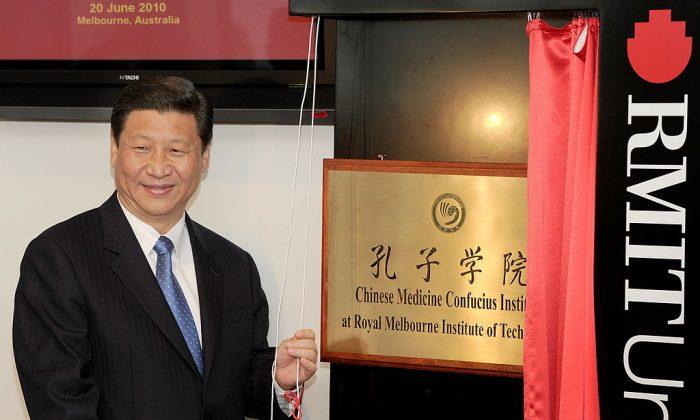A web of controversial Chinese Communist Party-backed programs called Confucius Institutes (CIs) has been developed and hosted at universities across the United States. Now, however, the CIs’ pretense of promoting Chinese culture and language has been removed.
CIs throughout the country have attracted attention from lawmakers, national organizations, and the FBI for allegedly undermining academic freedom. The CIs have been accused of promoting Chinese communist propaganda.
The initial concept China used to sell the CIs’ aim was to strengthen college and K–12 Chinese language learning throughout the United States and build a network of schools with the support of the Chinese government. The CIs’ Chinese language program grew to over 1,600 universities and schools around the world.
The CIs’ veneer was removed by the growing global controversy and inquiries surrounding China’s multi-billion-dollar CI program and the risks it could pose to society, such as violations of human rights, loss of academic integrity and freedom, subjecting students to foreign influence, and even potential infringements on national security.
One of the major policies of the CIs is to teach a very particular, Beijing-approved version of Chinese culture and history. This version ignores concerns over human rights, for example, and teaches that Taiwan and Tibet indisputably belong to mainland China.
Also, should a student raise questions about topics that Beijing deems “controversial political issues,” such as human rights in China, the Tiananmen Square massacre, the persecution of the spiritual discipline Falun Gong, and illegal organ harvesting, teachers have been instructed to toe Beijing’s line on this type of question. They are ordered to refocus the discussion to another topic.
In CIs, the subject of Falun Gong is especially forbidden. Falun Gong is a traditional Chinese meditation practice that includes five gentle exercises as well as teachings centered on the principles of truthfulness, compassion, and tolerance.
After Falun Gong was first taught in public in China in 1992, it quickly grew in popularity until an estimated 70 to 100 million people were practicing it—more than registered Chinese Communist Party members at the time, and Party dictator Jiang Zemin became jealous and fearful of the practice’s enormous popularity.
In 1999, the Party launched a nationwide persecution against Falun Gong. Practitioners have been arrested, tortured, and even murdered and subjected to organ harvesting so their organs could be sold for transplants. The persecution is ongoing to this day.
In a 2017 report on CIs, the National Association of Scholars (NAS) highlighted concerns over transparency, intellectual freedom, and censorship of topics including Taiwan and Tibet. The NAS recommended that all universities close their CIs.
“We must educate ourselves about the hidden agenda of the [Chinese Communist Party] and close these undercover attempts to bring communist influence through our schools to our children and to interfere in the activities of any independent academic organization,” the NAS stated.
It should alarm everyone that the CI agenda includes not only college students but also grades K–12 in its promotion of communist-tainted Chinese history. The CI has often been likened to a “Trojan Horse” type of vehicle to employ soft power.
In Arizona, there are CIs at Arizona State University, University of Arizona, and Northern Arizona University. Most of the CIs have extended their reach into partnering with multiple elementary schools in the area.




